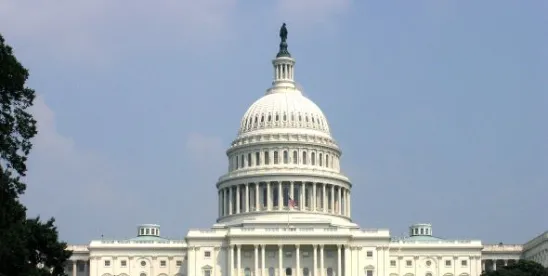Overview
When Congress returns in mid-November, there are two “must pass” bills Congress will address: i) the Fiscal Year (FY) 2023 appropriations legislation and; ii) the FY23 National Defense Authorization Act (NDAA).
These two legislative vehicles may serve as the final, executable opportunities to pass and enact policy in the 117th Congress.
Fiscal legislation will be in the form of an all-encompassing, 12-bill omnibus package or, alternatively, another continuing resolution (CR) with flat funding into the118th Congress. The current CR expires on 16 December 2022.
Enactment of the FY23 NDAA is required by 31 December 2022. The NDAA has been continuously passed and enacted for 61 years. On 14 July 2022, the House passed the measure, as amended, by a vote of 329-101. On 11 October 2022, the Senate Armed Services Committee undertook consideration of its draft of the bill. A Senate floor vote on the measure is highly uncertain.
The recent Senate NDAA procedure serves two requirements. First, it provides the Senate a vehicle to negotiate with the House passed NDAA. Second, it provides “buy-in” for senators to support passage of a final, conferenced bill in November or December 2022.
FY23 Appropriations
Congress must pass annual government spending bills each fiscal year. Failure to do so results in a shutdown of the federal government. Stopgap CRs allow the government to operate under the previous FY spending allocations. Notably, CRs preclude any new start programs or fiscal allocations.
Advancing an omnibus package or a CR will depend on the outcome of the midterm elections. There are 15 days until Election Day.
FY23 NDAA
The NDAA is widely expected to pass in the post-election, lame duck session.
The House of Representatives and Senate continue to wield considerable oversight over Department of Defense (DOD) programs and spending due to continuous passage of the annual defense bill.
As noted above, the Senate filed bill is unlikely to receive a final floor vote.
The chamber will be mired with other business during the lame duck session. Additional business the Senate plans to address after Election Day includes:
-
Judicial nominations;
-
DOD nominations;
-
FY23 omnibus spending;
-
Disaster relief for those impacted by Hurricane Ian;
-
Flood insurance reauthorization;
-
Election Count Act reforms;
-
Lesbian, gay, bisexual, transgender, queer or questioning persons (LGBTQ) and marriage equality protections;
-
Energy permitting reforms;
-
COVID-19 and monkeypox funding;
-
Tax extenders; and
-
Debt limit.
Negotiations over the final House and Senate conferenced legislation may include controversial amendments or riders. Because it is viewed as “must pass,” the NDAA attracts unrelated legislation in search of a vehicle for enactment.
This year is no exception.
The Senate filed NDAA includes authorization bills for the State Department, Maritime Administration, Coast Guard, and intelligence community.
It also includes the Water Resources Development Act, which authorizes spending on ports, harbors, and inland waterways.
Other potential NDAA amendments—many wide ranging, non-DOD related—include, but are not limited to:
-
Restricting economic and diplomatic ties with China;
-
Enhancing economic, diplomatic, and military ties with Taiwan;
-
Sanctioning Russia;
-
Enhancing ties with the Baltic countries;
-
Sanctioning or punishing the Organization of the Petroleum Exporting Countries Plus;
-
Eliminating current Authorizations for the Use of Military Force (AUMF);
-
Proposed new AUMF;
-
Immigration provisions;
-
Healthcare provisions;
-
Electoral Count Act reforms;
-
COVID-19 vaccine mandate provisions;
-
Criminal justice reforms;
-
LGBTQ and marriage equality protections;
-
Water and flood insurance provisions;
-
Energy permitting reforms;
-
Resilient space provisions;
-
Cryptocurrency provisions;
-
Quantum science and computing provisions;
-
Cannabis reforms; and
-
Cutting defense spending.
Currently, the House has 17 legislative days before the end of the year; the Senate has 22.
Key Takeaways
Congressional appropriations and authorizations always present uncertain outcomes. That is particularly true in election years and with congressional turnover.
FY23 Appropriations
Three scenarios:
-
12-bill omnibus package currently being negotiated;
-
Short term CR; and
-
Short term CR leading to yearlong CR in FY24.
FY23 NDAA
-
Passage expected in post-Election Day, lame duck period;
-
Final text currently being negotiated; and
-
Limited window for engagement, positioning, and influence on policy priorities.




 />i
/>i

